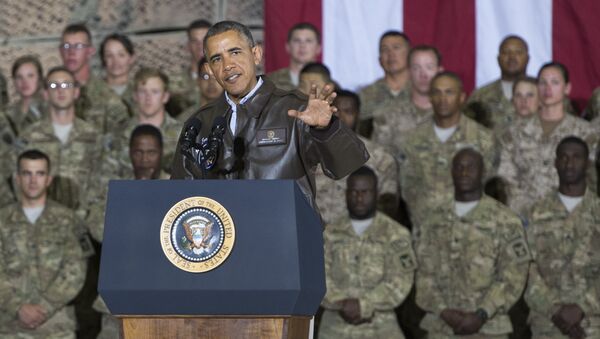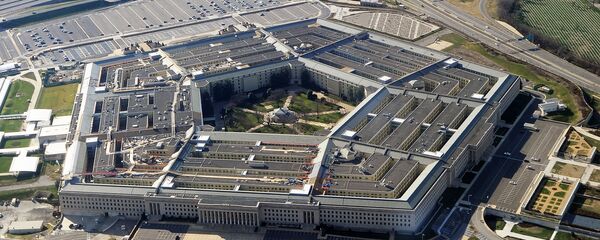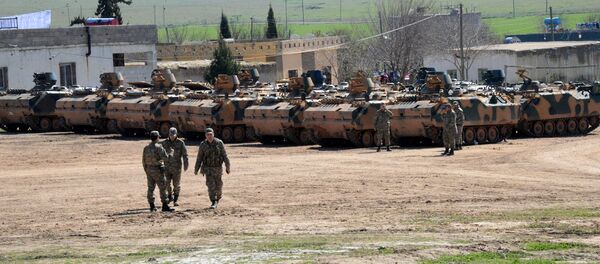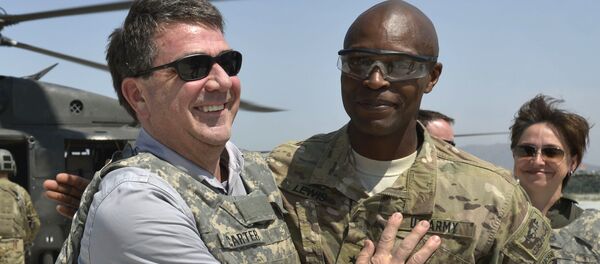The terror attacks in Paris last Friday have reinvigorated calls in the US to address the threat posed by the self-proclaimed Islamic State terrorist group.
"We should declare war, and harness all of the power that the United States can bring to bear, both diplomatic and military, of course, to be able to take out ISIS," presidential hopeful Jeb Bush said on NBC over the weekend.
But while much of the focus is being placed on military capabilities – and the consideration of placing US troops on the ground in Syria – Pentagon officials are worried that the White House isn’t paying equal attention to the efforts of the State Department.
"We can kill a lot of them, maybe all of them," one senior US military official told Politico, speaking on condition of anonymity. "We can probably convince some to quit and embrace a more moderate view. But if that is all we do, we will be back here again."
These officials are looking at the examples of Iraq and Afghanistan. While neither country presented a strong, technical military challenge, political difficulties caused by the destabilization of installed governments has led to over a decade of war in the region.
Any action taken in Syria should take these past examples into consideration.
"There is a renewed sense among the more experienced players that after every decisive action comes the questions, 'And then what?'" Joseph J. Collins, director of the Center for Complex Operations at the Pentagon’s National Defense University, told Politico.
Collins says that while some may be pushing for more boots on the ground, "there [are] very few of them asking that question. But there are certainly a lot of people in the Pentagon and the State Department who are asking that question."
Ken Pollack, a former CIA analyst and National Security Council official, voiced a similar view.
"Even if we somehow did obliterate ISIL – which would be extremely difficult – if we don’t end the civil wars we will have the son of ISIL tomorrow."
"ISIL is itself the son of Al Qaeda," he added.
A call for diplomatic efforts is especially prescient in the case of Syria, where the US and its Western allies have pushed for the removal of Syrian President Bashar al Assad as a prerequisite for any peace deal. Russia has maintained that preserving a legitimate government is essential to ensuring regional security, and that forcing Assad from power could have the same effect as the ousting of Saddam Hussein from Iraq.
Last month, the Obama administration also announced its plan to send as many as 50 Special Forces “advisers” into Syria. This strategy followed the failure of the administration’s previous plan to train-and-equip so-called "moderate" Syrian rebels.
On Tuesday, the US Joint Chiefs of Staff unveiled a new analysis drafted by military scholars aimed at how best to confront the challenges posed by militant groups like IS.
"Senior military planners must pay more attention to the linkage between political and military objectives," the report, entitled "Lessons Encountered: Learning from the Long War," reads. "Civil and military planning for post-conflict stability operations was inadequate. Poor post-conflict planning set back operations in Afghanistan and Iraq."
That report also encourages military leaders to express “respectful dissent” if they feel Washington’s commands lack a long-term strategy.
"While the civilian leadership remains firmly in charge of the policy process, senior military figures also have an obligation to provide their military expertise and, if necessary, their respectful dissent to help prevent strategic disaster."





